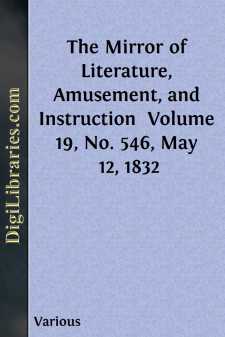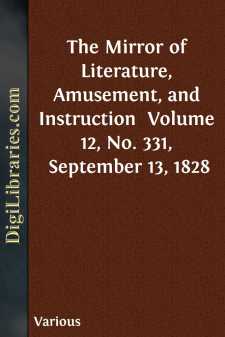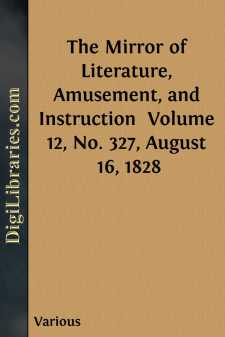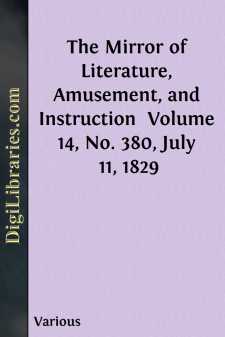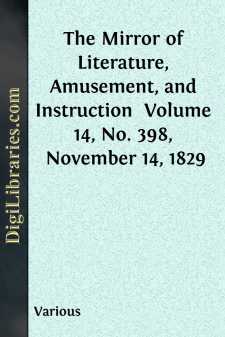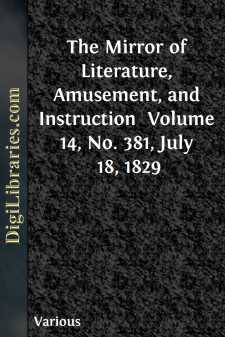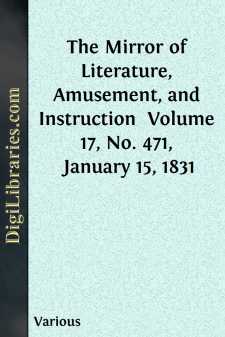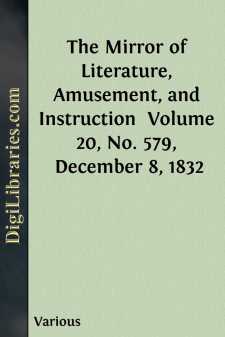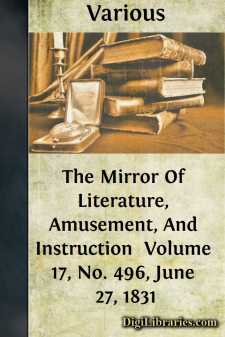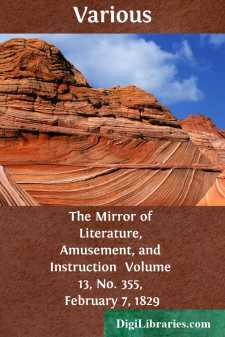Categories
- Antiques & Collectibles 13
- Architecture 36
- Art 48
- Bibles 22
- Biography & Autobiography 814
- Body, Mind & Spirit 145
- Business & Economics 28
- Children's Books 17
- Children's Fiction 14
- Computers 4
- Cooking 94
- Crafts & Hobbies 4
- Drama 346
- Education 56
- Family & Relationships 59
- Fiction 11833
- Foreign Language Study 3
- Games 19
- Gardening 17
- Health & Fitness 34
- History 1378
- House & Home 1
- Humor 147
- Juvenile Fiction 1873
- Juvenile Nonfiction 202
- Language Arts & Disciplines 89
- Law 16
- Literary Collections 686
- Literary Criticism 179
- Mathematics 13
- Medical 41
- Music 40
- Nature 179
- Non-Classifiable 1768
- Performing Arts 7
- Periodicals 1453
- Philosophy 66
- Photography 2
- Poetry 897
- Political Science 203
- Psychology 45
- Reference 154
- Religion 516
- Science 126
- Self-Help 85
- Social Science 82
- Sports & Recreation 34
- Study Aids 3
- Technology & Engineering 59
- Transportation 23
- Travel 463
- True Crime 29
Sort by:
by:
Various
ST. PANCRAS (OLD) CHURCH.ST. PANCRAS (OLD) CHURCH.This humble village fane is situated to the north of London, somewhat more than a mile from Holborn Bars. Persons unacquainted with the site, may hitherto have considered it as part and parcel of this vast metropolis: but, lo! here it stands amidst much of its primitive, peaceful rusticity. Pancras is still, by courtesy, called a village, though its...
more...
by:
Various
CHARLECOTE HALL, NEAR STRATFORD-UPON-AVON "One of the most delightful things in the world is going a journey." Now if there be one of our million of friends who, like the fop in the play, thinks all beyond Hyde Park a desert, let him forthwith proceed on a pilgrimage to Stratford-upon-Avon, the birthplace of SHAKSPEARE; and though he be the veriest Londoner that ever sung of the "sweet...
more...
by:
Various
ROSAMOND'S WELL AND LABYRINTH .Rosamond's Well and Labyrinth at Woodstock. For the originals of the annexed engravings we are indebted to the sketchbooks of two esteemed correspondents. The sites are so consecrated, or we should rather say perpetuated, in history, and the fates and fortunes of Rosamond Clifford are so familiar to our readers, that we shall add but few words on the locality of...
more...
by:
Various
MERCERS' HALL, AND CHEAPSIDE The engraving is an interesting illustration of the architecture of the metropolis in the seventeenth century, independent of its local association with names illustrious in historical record. In former times, when persons of the same trade congregated together in some particular street, the mercers principally assembled in West Cheap, now called Cheapside, near where...
more...
by:
Various
THE NATURALIST. Castles, cathedrals, and churches, palaces, and parks, and architectural subjects generally, have occupied so many frontispiece pages of our recent numbers, that we have been induced to select the annexed cuts as a pleasant relief to this artificial monotony. They are Curiosities of Nature; and, in truth, more interesting than the proudest work of men's hands. Their economy is much...
more...
by:
Various
THE MANSION OF HIS GRACE THE DUKE OF WELLINGTON. The town mansions of our nobility are generally beneath all architectural criticism; and it has been pertinently observed that "an educated foreigner is quite astonished when shown the residences of our higher nobility and gentry in the British capital. He has heard speak of some great nobleman, with a revenue equal to that of a principality. He...
more...
by:
Various
CASTLE OF VINCENNES. Every reader at all conversant with the history of the present century, or the past year, will appreciate our choice of the above Engraving. Its pictorial and historical interest will not bear comparison; unless it be in the strong contrast which the gloomy, wretched-looking building affords with the beautiful paysage of the scene. The spectator may perhaps reflect on the damning...
more...
by:
Various
ANTWERP. This Engraving may prove a welcome pictorial accompaniment to a score of plans of "the seat of war," in illustration of the leading topic of the day. The view may be relied on for accuracy; it being a transfer of the engraving in "Select Views of the Principal Cities of Europe, from Original Paintings, by Lieutenant Colonel Batty, F.R.S." We have so recently described the city,...
more...
by:
Various
MEMOIR OF LORD HIGH CHANCELLOR OF GREAT BRITAIN, &C. His purpose chose, he forward pressed outright, Nor turned aside for danger or delight.—COWLEY. The illustrious subject of this Memoir is the eldest son of a gentleman of small fortune, but ancient family, in Cumberland, His mother was the daughter of a Scotch clergyman; in the mansion of whose widow, on the Castle Hill of Edinburgh, the father...
more...
by:
Various
VILLAS IN THE REGENT'S PARK. MARQUESS OF HERTFORD'S VILLA. DORIC VILLA. The definition of the word villa is a country seat; but the reader will ask, how can a country seat be in the midst of a metropolis, or in its brick and mortar confines? The term, however, admits of various modifications. The villas of the Romans resembled large city palaces removed into the country, and some of them were...
more...


